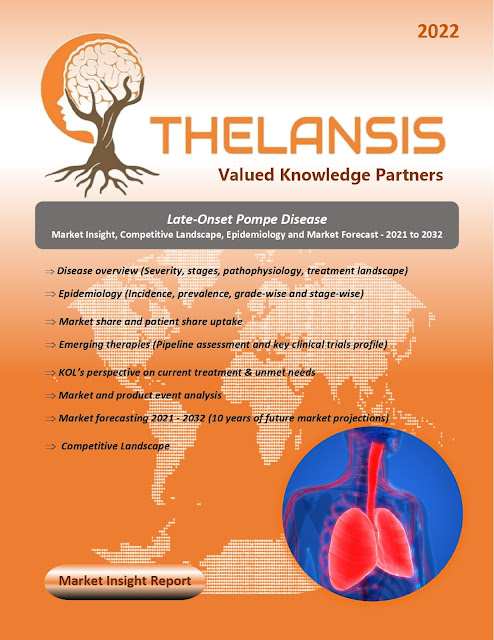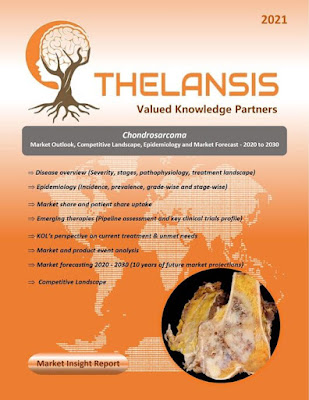Late-Onset Pompe Disease – Market outlook, Epidemiology, Competitive Landscape, and Market Forecast Report – 2021 To 2032
Late-onset Pompe disease (LOPD, juvenile, and adult-onset) can appear as early as one year old and as late as the sixth decade. The late-onset form is associated with significant morbidity and is distinguished by progressive skeletal muscle weakness and respiratory insufficiency, eventually leading to respiratory failure and death. The late-onset form is variable, with all possible neuromuscular, musculoskeletal, respiratory, and cardiac symptoms. Muscle weakness is generally more pronounced in the proximal muscles of the lower extremities, with less involvement of the distal muscles and upper extremities. Muscle pathology can be asymmetric or symmetric; the trunk, thigh, and pelvic girdle muscles are the most likely to be affected, and specific muscle groups may be involved selectively. Patients may experience difficulty walking, running, participating in sports, climbing stairs, rising from a chair, or rising from a prone position. Motor development milestones are frequently missed in children with late-onset Pompe disease. In addition, limb-girdle weakness, back pain, fatigue, and muscle cramps are common complaints.
The prevalence of Late-Onset Pompe
disease ranges from 1 in 50,000 of the population in the USA.
The competitive
landscape of Late-Onset Pompe Disease includes country-specific approved and
pipeline therapies. Any asset/product-specific designation, review, and
Accelerated Approval are tracked and supplemented with analyst commentary.
KOLs insights of Late-Onset
Pompe Disease across 8 MM market from the center of Excellence/ Public/ Private
hospitals participated in the study. Insights around current treatment
landscape, epidemiology, clinical characteristics, future treatment paradigm,
and Unmet needs.
Late-Onset
Pompe Disease Market
Forecast: Patient Based Forecast Model (MS. Excel Based Automated
Dashboard), which Data Inputs with sourcing, Market Event, Product Event,
Country specific Forecast Model, Market uptake and patient share uptake,
Attribute Analysis, Analog Analysis, Disease burden, and pricing scenario,
Summary, and Insights.
S. No Asset Company Stage
1 AT845 Astellas Pharma
Inc Phase 1/2
2 AT2221 Amicus
Therapeutics Phase 3
3 ACTUS-101 Asklepios
Biopharmaceutical, Inc. Phase 2
4 BMN 701 BioMarin
Pharmaceutical Phase 1


Comments
Post a Comment